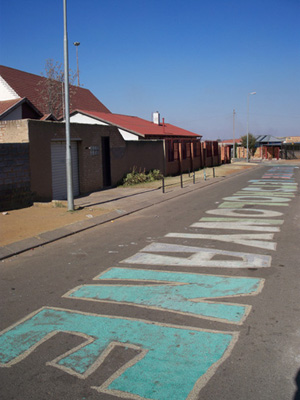When Siphiwe Tshabalala scored for Bafana Bafana against Mexico on June 11, he provided the World Cup the sublime opening note longed for by his country, and by followers of football across the planet. Mexico’s late equalizer dampened the local mood only slightly. Bafana Bafana had looked fresh, playing with the urgency the moment demanded but also with evident self-belief, and even flair. The optimism would not last. In their second match on 16 June, Bafana Bafana succumbed to a technically and tactically superior Uruguay side, 3-0. The obituaries followed, announcing the death not only of Bafana Bafana’s campaign, but of the tournament itself — it is a commonly held truism that for a World Cup to be successful, the host country’s side must perform well. Danny Jordaan, chief South African organizer of the event, admitted as much in his morning-after remarks. He also compared the Uruguay defeat to another, more literal massacre — the Soweto Uprising of 1976: “Yesterday was June 16 and on June 16, 1976 it was the youth that was slaughtered on the streets of South Africa, I suppose in part for future hope. I hope that Bafana Bafana’s slaughtering on the field last night is also in the name of future hope.” An ill-conceived analogy, and one that begs for further elaboration. How can World Cup failure engender future hope? And how does defeat on a soccer field bear any resemblance to the state’s murder of youth in struggle?
Bafana Bafana will have one more chance to inspire their supporters and shape the tone of the tournament when they play France — who have been absolutely dire, thus far — in their final group fixture on 22 June. Bafana Bafana have little mathematical chance of advancing to the second round. This does not diminish the fact that a positive performance from the home team will lend a great deal of energy to the tournament as it moves forward. Where I’m staying, in Soweto, residents remain deeply involved with the event. Streets are covered with colorful chalk messages welcoming the world, and celebrating neighborhood players that now wear the Bafana Bafana shirt. During anticipated matches, the soundscape is dominated by television or radio commentary and the bovine-like call of the vuvuzela horn (South Africa’s soccer instrument of choice).
Not everyone is obsessed with the football, though. Last night I found myself watching Mexico’s encounter with France (2-0 to the former) in solitude; the rest of the household was in the kitchen, in thrall to that other form of popular drama, the television soap opera.


